- News
- Reviews
- Bikes
- Components
- Bar tape & grips
- Bottom brackets
- Brake & gear cables
- Brake & STI levers
- Brake pads & spares
- Brakes
- Cassettes & freewheels
- Chains
- Chainsets & chainrings
- Derailleurs - front
- Derailleurs - rear
- Forks
- Gear levers & shifters
- Groupsets
- Handlebars & extensions
- Headsets
- Hubs
- Inner tubes
- Pedals
- Quick releases & skewers
- Saddles
- Seatposts
- Stems
- Wheels
- Tyres
- Tubeless valves
- Accessories
- Accessories - misc
- Computer mounts
- Bags
- Bar ends
- Bike bags & cases
- Bottle cages
- Bottles
- Cameras
- Car racks
- Child seats
- Computers
- Glasses
- GPS units
- Helmets
- Lights - front
- Lights - rear
- Lights - sets
- Locks
- Mirrors
- Mudguards
- Racks
- Pumps & CO2 inflators
- Puncture kits
- Reflectives
- Smart watches
- Stands and racks
- Trailers
- Clothing
- Health, fitness and nutrition
- Tools and workshop
- Miscellaneous
- Buyers Guides
- Features
- Forum
- Recommends
- Podcast
TECH NEWS
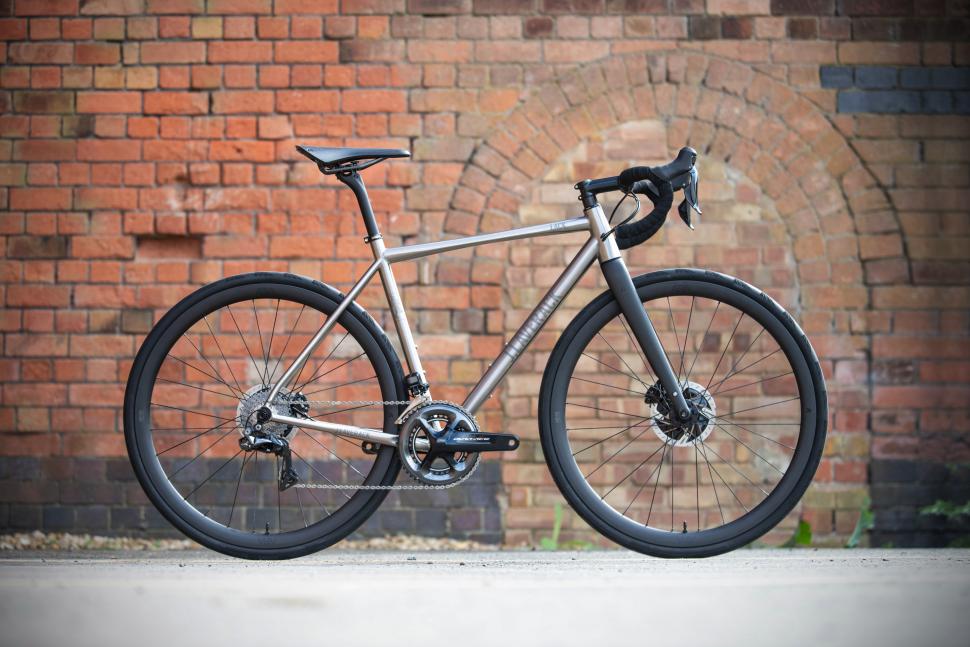 2021 J.Laverack J.ACK full bike
2021 J.Laverack J.ACK full bikeJ.Laverack updates J.ACK titanium four-season bike with upgradable parts for concealing cables
Bespoke British bike brand J.Laverack has refined its J.ACK all-road titanium bike with upgraded parts including carbon components for concealing dynamo set-ups.
The J.ACK is J.Laverack’s four-season bike that’s made-to-measure and designed to be capable of riding over Britain’s roughest roads. It can accommodate 38mm without mudguards and 35mm with.
“With the J.Laverack R J.ACK it provides a nice balance between stiffness and compliance,” David Arthur said when he reviewed the bike back in 2018. “It has the necessary stiffness to ensure direct handling and responsiveness for energetic and pacy riding, yet is composed and compliant over the rough roads that are a regular feature around most of the UK.”
> Should you choose a steel, aluminium, titanium or carbon road bike?
J.Laverack’s Streamline tapered head tube and threaded bottom bracket, which integrates the brake and gear cables inside the frame, is now included as an optional upgrade. This design protects the cables from water, mud and grit, while also giving the bike a clean finish.
For bikepackers and commuters, a carbon fork and seatpost designed by J.Laverack’s in-house components builder ÆRA Components, can be added to hide dynamo cables that power front and rear lights.
> 18 of the best titanium road bikes—should you buy a titanium bike?
As with all the brand’s bespoke bikes, the J.ACK is made-to-measure following a bike fit to ensure the frame geometry meets the personal requirements for each rider. This bike fitting assessment takes place in J.Laverack’s studio in Oakham, Rutland.
“This Savile Row approach means all tube lengths and angles can be fine-tuned to maximise the performance and comfort of every individual cyclist,” says J.Laverack.
The bottom bracket is also now engraved with J.Laverack’s mantra, ‘The Freedom to Explore’.
You have the choice between a hand brushed, pavé or painted frame finish, and you can further personalise the frame with hand-finished graphics.
Practical options include discreet mounts for mudguards, a third bottle cage, pannier rack or top tube bag.
Bespoke and standard geometry frames are available from 44cm to 64cm.
Price wise, J.ACK framesets start at £2,775, while complete bikes begin at £4,145. You can book a test ride at jlaverack.co.uk
Anna has been hooked on bikes ever since her youthful beginnings at Hillingdon Cycle Circuit. As an avid road and track racer, she reached the heady heights of a ProCyclingStats profile before leaving for university. Having now completed an MA in Multimedia Journalism, she’s hoping to add some (more successful) results. Although her greatest wish is for the broader acceptance of wearing funky cycling socks over the top of leg warmers.
Latest Comments
- lwrncc 3 hours 40 min ago
My 2 cents. My road bikes with 28mm tires at 55-60 psi and cane creek / redshift components are more comfortable than my rigid mtb with 60mm tires...
- David9694 6 hours 57 min ago
Active travel schemes are 'squeezing out motorists in favour of cyclists' Go Rochdale!
- mdavidford 7 hours 33 min ago
You don't like the Look of it then?
- chrisonabike 7 hours 44 min ago
TBF I think their complaint was with the design as proposed. There would be a cycle path with cyclists moving in two directions with little buffer...
- dh700 11 hours 5 min ago
I'd argue that nothing at all is wrong with the bans that you describe -- and they exist in some places....
- slc 11 hours 27 min ago
You seem to be forgetting the first article in our great constitution. A citizen has the right to store motor vehicles immediately outside their...
- Jakrayan 12 hours 34 min ago
Yeah, the number of times I've had oncoming drivers overtake a stationary vehicle - parked car on their side for example - forcing me to hit the...
- bobbinogs 12 hours 51 min ago
I always think that the Pearson font is such a dreadful choice, it's almost impossible to read.
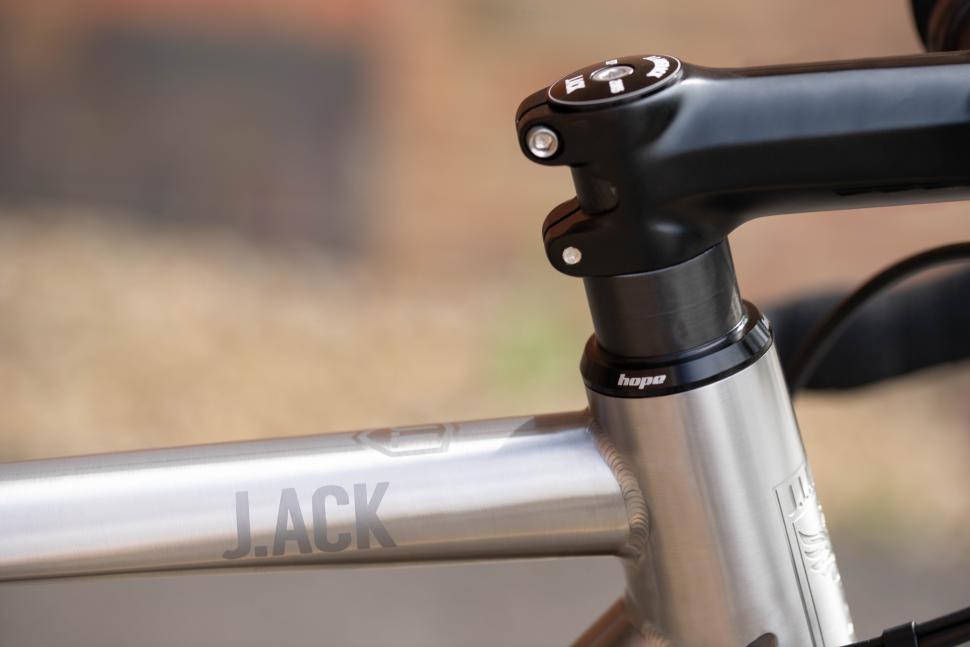
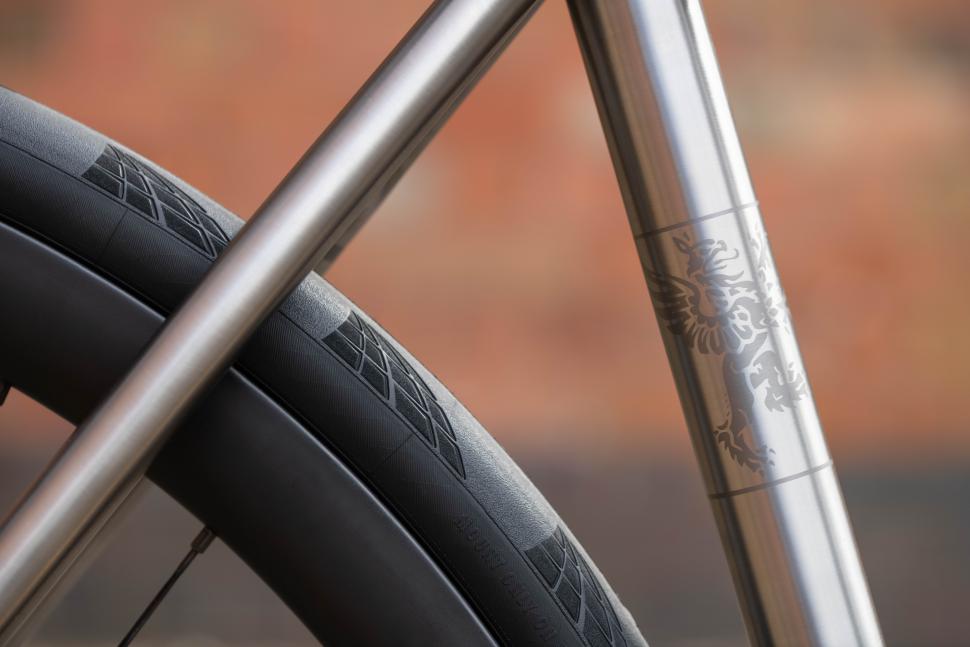
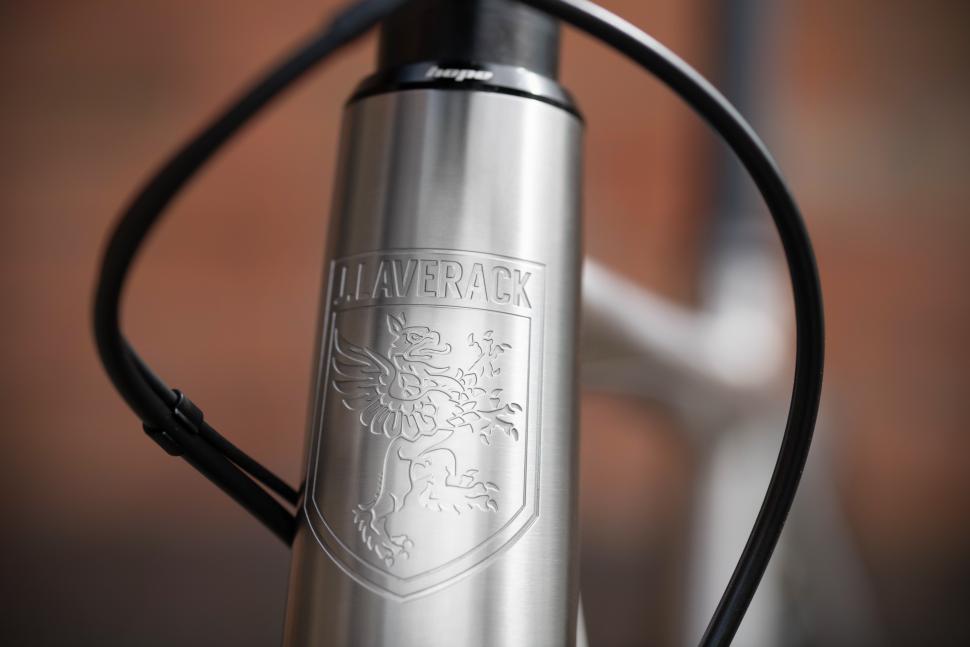
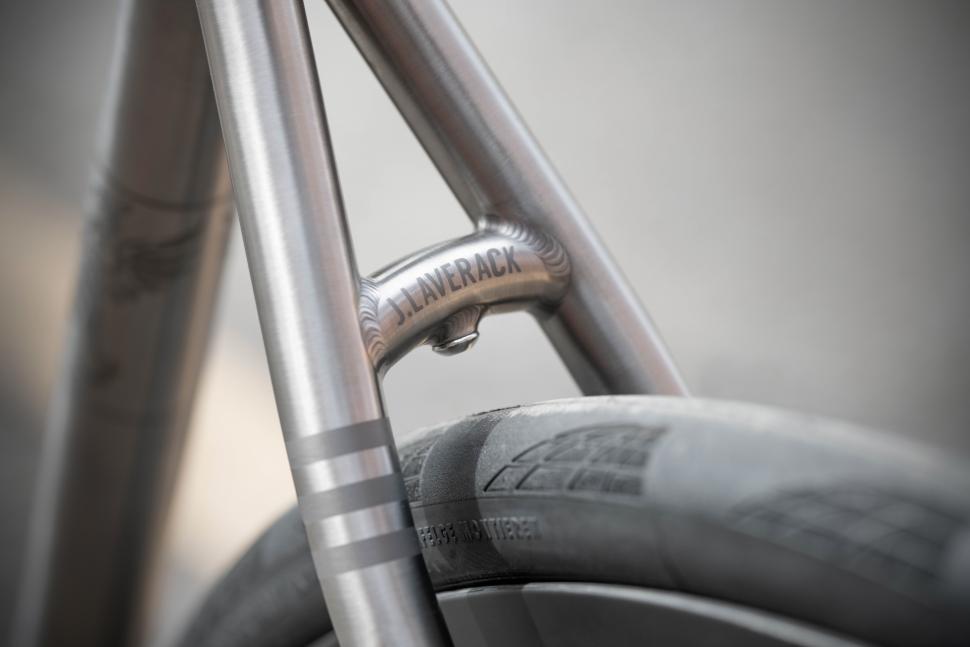
Add new comment
9 comments
I use that Aera fork on my Vaaru, in order to internally route the brake hose, dynamo wire to the front light AND dynamo wire to the top cap (where I have a USB charger). It's a very tidy bit of kit.
Lovely looking bikes but you will need to be very patient as I have been waiting for my GRiT frameset for 12 months and it still hasn't arrived.
Lovely bike but that rear mudguard mount is a bit scruffy. I have a bike with a threaded sleve instead so from the angle that this pic is taken nothing would be seen. Save a few mm of mud clearance as well.
Keep seeing pictures showing the stem clamped around the very end of the (carbon) steerer. I had been given to understand this was a bad idea owing to the upper clamp forces bearing upon the open end of the steerer, causing it to distort leading possibly to failure.
Am I out of date?
Wisdom of crowds (the internet) suggests that it was merely good practise / ultra paranoid advice from US firms frightened of being sued.
You'll have the wingman on your case with some advise soonish...
I am with you Sriracha.
To me the purpose of the top spacer is two fold, firstly as Secret_squirrel says, to get the clamping forces away from the end of the tube, It is also there to assist in the assembly as it is important that the top of the spacer stack is above the top of the steerer tube before the top cap is fitted. This way there is the ability to load the bearings in the headset with the top cap before tightening the stem clamp.
Depends on the design of the stem clamps along with the shape/type/quality of the bung inside
Ive done it on the same fork since 2006 - A RealDesign HP Signature (Merlin/Lightspeed). It depends on the fork and the compression bolt.